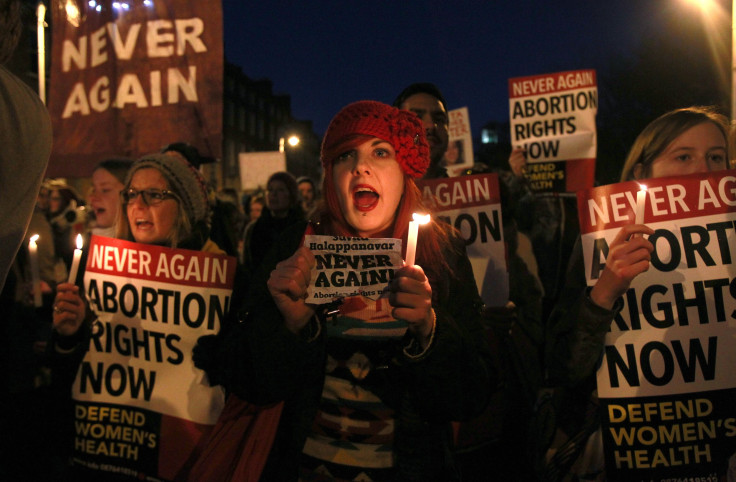UN Report Calls Ireland’s Abortion Ban ‘Cruel’ and ‘Discriminatory’

A United Nations report Thursday has found that Ireland’s ban on abortion is discriminatory, cruel and degrading toward women and has called upon the country to legalize the practice for cases involving fatal abnormalities.
Abortion is illegal in the majority Catholic country with the only exception being cases where the life of the mother is endangered by continuing the pregnancy.
The 29-page U.N. report accepted a complaint filed by a Dublin resident, Amanda Mellet, who was denied an abortion in 2011 even after her doctor informed her that her fetus had a fatal congenital heart defect and could not survive outside the womb. Even in such cases, Ireland’s ban requires women to carry the fetus to full term or travel abroad, usually to England, for abortions.
The U.N. Human Rights Committee acknowledged that the woman had to choose “between continuing her non-viable pregnancy or traveling to another country while carrying a dying foetus, at personal expense and separated from the support of her family, and to return while not fully recovered.”
“To this end, the State party (Ireland) should amend its law on voluntary termination of pregnancy, including if necessary its Constitution, to ensure compliance with the Covenant (International Covenant on Civil and Political Rights), including effective, timely and accessible procedures for pregnancy termination in Ireland, and take measures to ensure that health-care providers are in a position to supply full information on safe abortion services without fearing being subjected to criminal sanctions,” the committee said in its findings.
Ireland's tough abortion laws have repeatedly come under fire from pro-choice activists and citizens especially in cases of incest or rape. The death of Savita Halappanavar, a doctor of Indian origin, after she was allegedly refused a termination because it was against the law, resulted in widespread protests across the country.
© Copyright IBTimes 2025. All rights reserved.






















